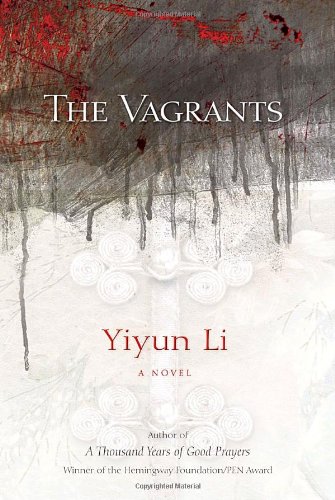The Vagrants
“If you look at history, as no one in this country does anymore, a martyr has always served the purpose of deception on a grand scale, be it a religion or an ideology,” thinks Teacher Gu in an imaginary dialogue with his first ex-wife. This inner dialogue follows his daughter’s execution as a counterrevolutionary on the spring equinox, March 21, 1979. The story about Gu Shan’s demise doesn’t hold back the horrific details or its fragile, tender moments, binding together a motley group of characters into a solidified reactionary force protesting tyranny and mourning the loss of more than a person. The reader sees how the crippled girl Nini has been connected to Gu Shan and what the latter’s death means to Nini’s satisfied parents. The tension increases with the questionable actions of Bashi, who seeks a child-bride but is also capable of unspeakable cruelty. Tong, a seven-year-old boy, carefully observes his mother following through on her determined words, “A thousand grains of sand can make a tower.” Finally, we watch Kai, a young woman married to a politically connected, successful man, who evolves from a government announcer parroting Communist party propaganda to a reactionary force willing to risk literally everything.
The Vagrants isn’t a typical story depicting Chinese history but a testament to loyalty to higher, democratic ideals. Yiyun Li’s first novel introduces a powerful, literary author who has crafted her story with carefully placed metaphors, reflections, storyline twists and turns, and vibrant characters the reader comes to deeply respect and honor. The Chinese history may be familiar, but Yiyun Li’s exquisite writing style is one of the most extraordinary this reviewer has read in a long time. Don’t miss it.










